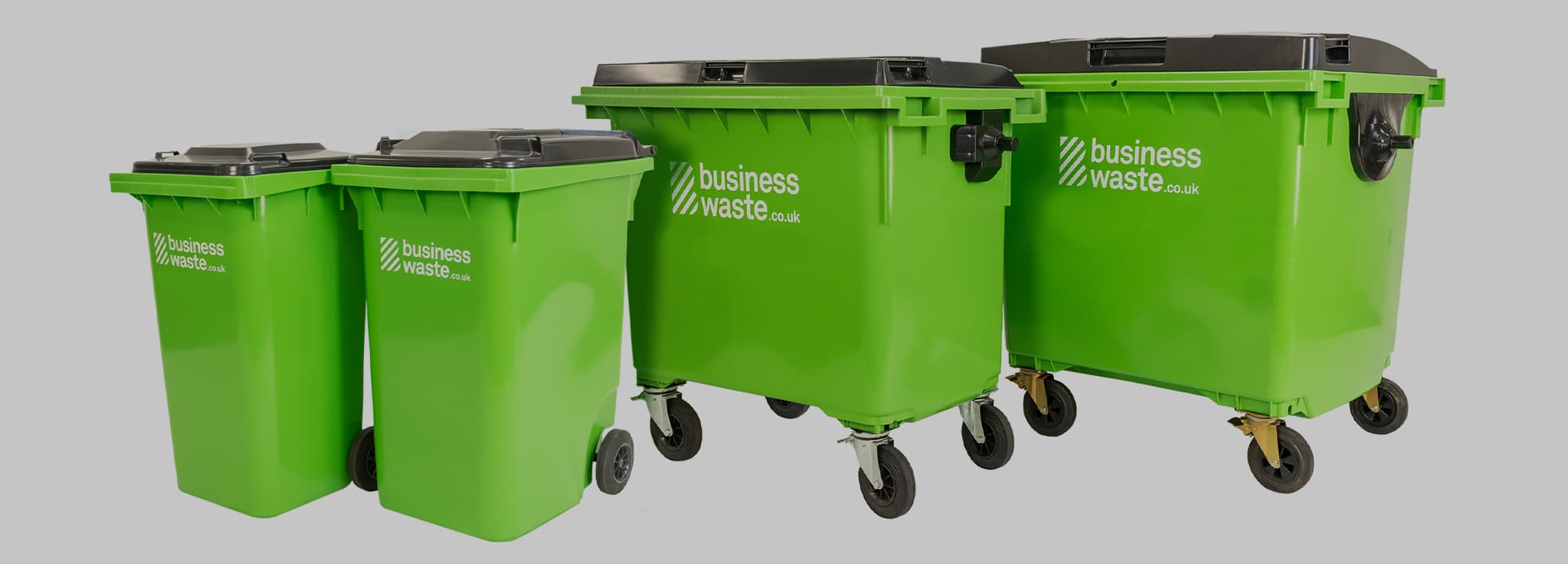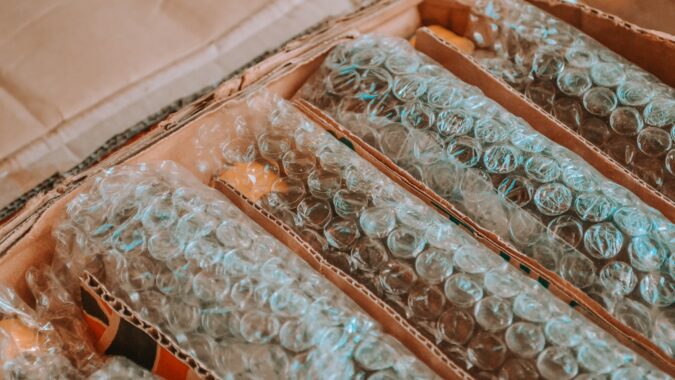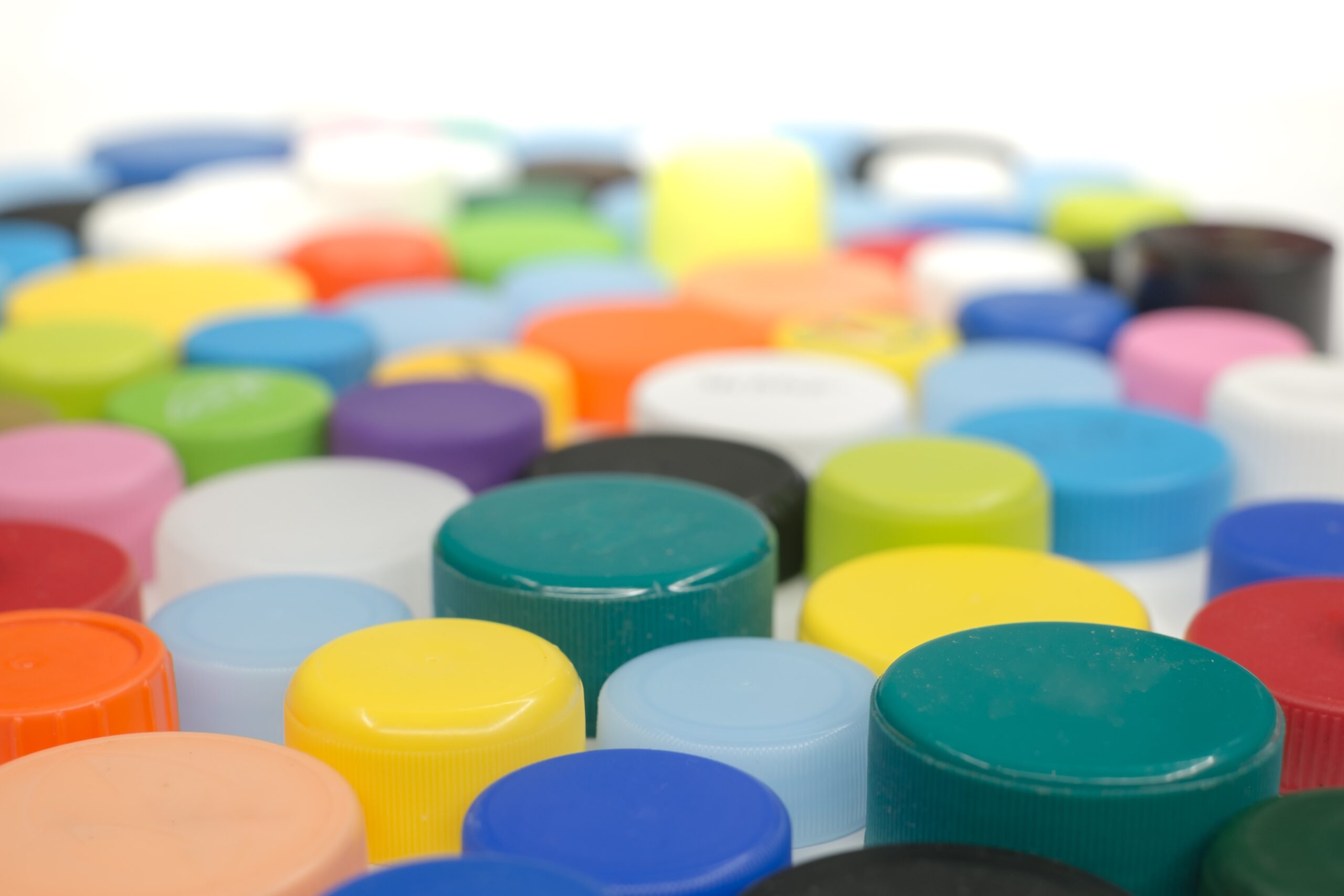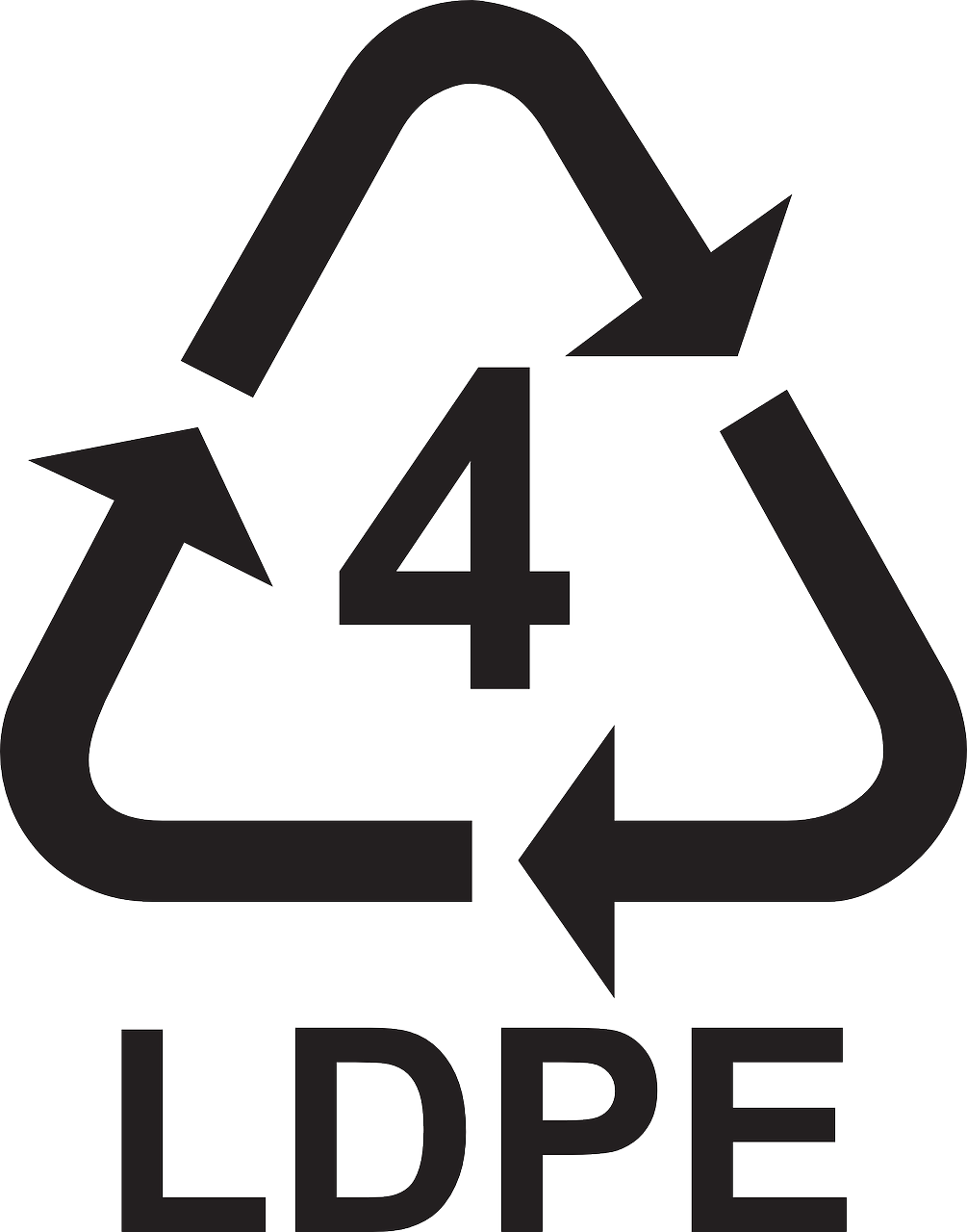
LDPE Recycling
Low density polyethylene (LDPE) is a thermoplastic that’s commonly used for domestic, commercial, and industrial applications. It shares many similarities with HDPE plastic, but the main differences are that LDPE is generally thinner, softer, and less strong but more flexible than HDPE. Recycling LDPE is possible and should be done to help the environment.
Shrink wrap, bubble wrap, cling film, bottle tops, and some cables are all made from LDPE. When recycling LDPE it will be separated from HDPE and other plastic types due to its different properties. However, you can store LDPE with other plastic waste on site as it’ll be separated before recycling at the recycling centre.
Learn all about LDPE recycling on this page. Or get a free quote for plastic waste collection (including LDPE waste) by calling 0800 211 8390 or contacting us online today.

Get a free quote
Get a fast FREE quote for LDPE recycling
- Free quote within 1 hr
- Any type of LDPE
- FREE bins and delivery
- We cover all of the UK
What is LDPE?
LDPE is a thermoplastic created from the monomer ethylene. It’s an adaptable and commonly used polymer to create various consumer, commercial, and industrial products. LDPE was the first polyethylene to be produced during the 1930s and is considered a clean and safe plastic with plastic code number 4.
As the name suggests, LDPE differs from HDPE as it has a lower density. It’s not as strong but is thinner, more malleable, has greater transparency, and has a lower melting point. Some of the key properties of LDPE are that it:
- Has a low density for a lightweight feel
- Is durable and flexible
- Has a high impact resistance and doesn’t shatter easily
- Resists acids, bases, oils, and many chemicals
- Doesn’t absorb water easily or release chemicals, making it ideal for food packaging
Around 19 megatons of LDPE are produced across the world every year. It’s used to create a wide range of products used in daily domestic, commercial, and industrial applications, such as:
- Pallet and shrink wrap
- Cling film
- Bubble wrap
- Clear plastic bags
- Bottle tops and lids
- Food packaging
- Children’s toys
- Electrical wire and cable insulation
- Squeezable condiment bottles
- Floor tiles
Is LDPE recyclable?
LDPE is recyclable. However, rigid LDPE products are much easier to recycle than flexible and soft versions of plastic. Therefore, some local authorities only accept solid and rigid LDPE items for recycling and not soft types, such as cling film. This is because they’re more likely to be contaminated and can get caught in recycling machinery.
Generally, you can store used LDPE products with the rest of your plastic waste – as it’ll be sorted and separated at the recycling centre before processing. LDPE must be recycled separately from HDPE and other plastic types due to its structural properties. It can be recycled into various products such as bubble wrap, film plastic, bin liners, compost bins, floor tiles, and more.
LDPE has plastic code 4 and is accepted in most domestic recycling bins. However, you should check with your local authority first as some have restrictions on recycling certain LDPE products. For LDPE plastic bags you might have to take them to a specific carrier bag recycling point found in many supermarkets or to your local household waste recycling centre (HWRC).

How is LDPE recycled?
Rigid and soft LDPE plastics are normally separated before recycling. Soft LDPE film is often sorted by grade to ensure high-quality material output. You can store all types of LDPE and other plastic waste together on site though, as it will be sorted at the recycling centre before processing.
The general process to recycle LDPE involves:
- Sorting – once your waste LDPE plastic reaches the recycling centre it’s sorted and separated by plastic type and grade. Often soft and rigid LDPE items will be separated and sent for recycling separately.
- Cleaning – lots of LDPE film, packaging, and other items may be contaminated with food, labels, and stickers. They’re cleaned thoroughly to remove these and then dried sometimes.
- Shredding/chewing – thin LDPE can get caught in the teeth of some recycling machines, so they’re sent to specialist LDPE recycling machines. These chew up and shred the plastic into small pieces.
- Melting and moulding – the shredded LDPE is then heated up to temperatures between 106°C and 112°C and melted, before being moulded into plastic pellets.
- Creating new products – these pellets are often mixed with small amounts of virgin LDPE and used to create new recycled LDPE products such as compost bins, panelling, and bin bags.
Why is recycling
LDPE important?
In the UK, around 564 million plastic bags are used every year and nearly 20% of them are made from LDPE. That’s around 100 million LDPE plastic bags that could be recycled. As they’re lightweight they can easily blow around and out of landfill sites, causing a choking hazard to animals and wider environmental effects.
LDPE plastic can take hundreds and even up to a thousand years to biodegrade depending on the product. This takes up valuable landfill space as the material is recyclable. Recycling LDPE also saves on the resources and energy required to create new plastic and reduces the pollution caused by forming it from scratch.
LDPE 4 recycling lowers your commercial waste disposal costs as well. With your waste LDPE products sent for recycling it reduces the amount of landfill tax your business pays for their disposal. Recycle soft and rigid LDPE waste to protect the environment, save your business money, and enhance its green reputation.
How to dispose
of LDPE plastic
To dispose of LDPE plastic from your business you must arrange commercial waste collection by licensed waste carriers. LDPE can be stored in bins with other types of plastic waste your organisation produces, as it’s sorted before processing at the recycling centre. We can help you dispose of and recycle LDPE waste in a few simple steps:
- Start with a free no obligation quote for LDPE waste collection and recycling from your business. Provide details about the sizes and number of bins you need, how often you want them collected, and where your business is in the UK.
- Arrange delivery of free plastic bins to your site anywhere in the UK – you only cover the collection costs. Put your LDPE and any other plastic waste in each bin within any max fill or weight limits.
- Place your full plastic bins in the agreed collection spot. Licensed waste carriers will remove your bins on time and replace them if requested.
- Your plastic waste is transported to a nearby waste management centre where it’s checked, sorted, cleaned, and recycled into fresh LDPE products.
- Receive a free duty of care certificate for every load of plastic waste removed from your business. This provides peace of mind and shows that your LDPE waste was removed and recycled – upholding your responsibilities.
For any LDPE waste you produce at home, see if you can dispose of it in your household recycling bin with your local authority. Check for the LDPE 4 recycling logo where the authority lists accepted waste for recycling. If you can’t, check if you can take it to your local HWRC or contact us at Business Waste to arrange plastic waste collection.

Who needs to
recycle LDPE?
Every business should recycle LDPE where possible. It could be lots of carrier bags from a supermarket, shrink wrap used for packaging, or tiles from a construction site. Whatever type and amount of LDPE waste you produce should be stored with any other plastic waste before you arrange commercial waste collection to ensure it’s recycled.
Some industries that create high levels of LDPE waste for recycling include:
Arrange LDPE plastic
waste collection
Start with a free no obligation quote for plastic waste collection anywhere in the UK, including LDPE waste. Just let us know the number and size of bins you need, how often you want them collected, and where your business is based. Then we’ll deliver free bins – you only pay for collection.
Arrange collection on a daily, weekly, or fortnightly basis to suit your schedule. Licensed waste carriers remove and replace your bins on time for a cost-effective and efficient solution to recycle your LDPE waste. Call 0800 211 8390 or contact us online for your free quote today.
LDPE recycling FAQs
-
How is LDPE made?
LDPE is made by compressing ethylene gas and then putting it in a reaction vessel at temperatures of around 160°C. Here the polymerisation process begins, which converts about 20% of the ethylene into polyethylene. Antioxidants and stabilizers are added to the polyethylene before it’s cooled in water and cut into pellets.
These pellets are dried and screened for contaminants by an air-streaming process, and the resulting LDPE is removed. It’s then packaged and sent to manufacturers for melting and moulding into products.
-
Is LDPE biodegradable?
LDPE is technically biodegradable, but it can take hundreds of years to break down. LDPE is 100% recyclable so should be recycled rather than sent to landfill. As LDPE starts to break down the chemicals contained in the plastic can leach out, which adds to pollution levels and has a negative environmental impact.
-
How long does it take for LDPE to biodegrade?
It can take between 500 and 1,000 years for LDPE to biodegrade. The exact amount of time for LDPE to biodegrade depends on the specific product, as thicker items may take longer than thinner LDPE film and bags. Conditions also affect how long LDPE takes to biodegrade.
-
How many times can LDPE be recycled?
LDPE is 100% recyclable, but it can only be recycled a few times. This is because the thinner material loses its quality as it goes through the recycling process. It can depend on the specific product and its thickness, but unlike HDPE which can be recycled up to ten times, LDPE can sometimes only be recycled once.
It’s still worth sending all your LDPE waste for recycling though, as its quality will be checked at the recycling centre before processing.
-
Can I put LDPE 4 in my recycling bin?
Check with your local council or authority if they accept LDPE 4 for recycling in domestic household recycling bins. It’s one of the most used plastic types and can be put in most recycling bins. If your local authority doesn’t accept LDPE waste for recycling see if you can take it to a nearby HWRC instead.
Get a fast and free quote
Get a fast FREE quote for plastic waste collection
- Free quote within 1 hr
- Any type of waste plastic
- FREE bins and delivery
- We cover all of the UK